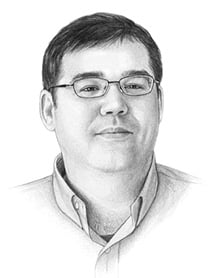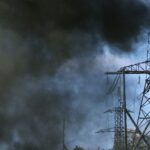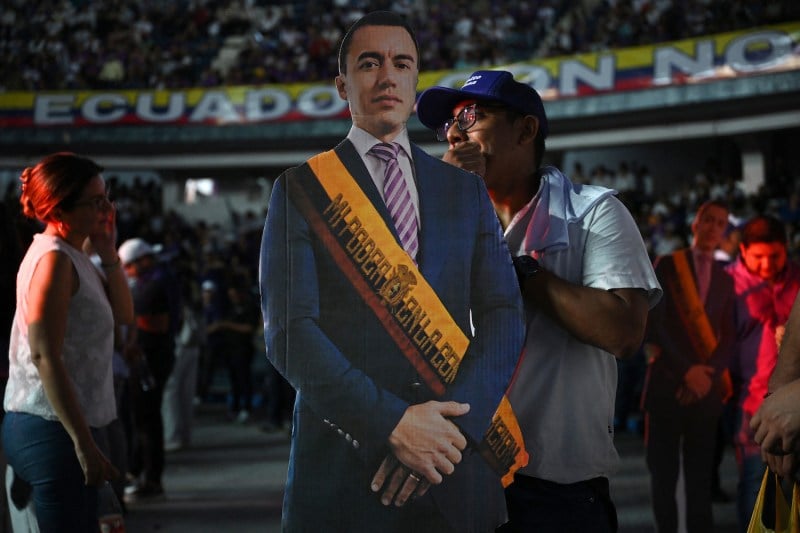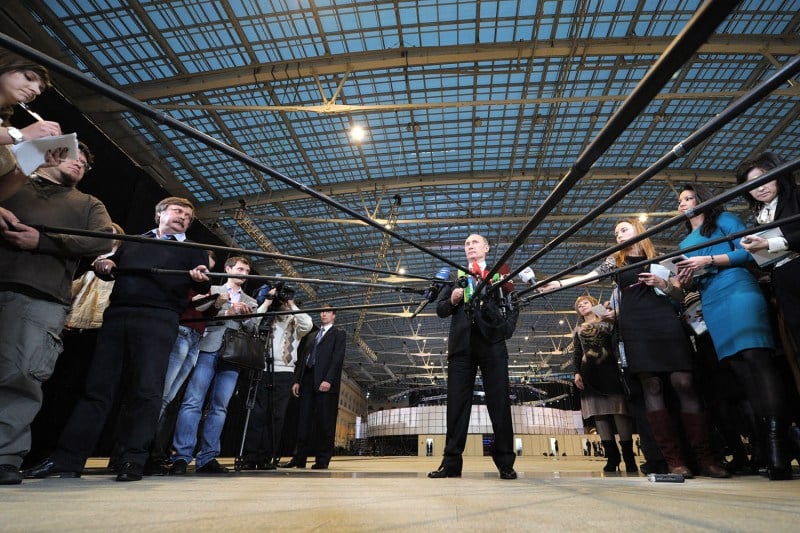Another High-Ranking Chinese Official Falls

Another High-Ranking Chinese Official Falls
Jin Zhuanglong is the latest State Council member to lose out amid President Xi Jinping’s rolling purges.
Sean Gallup/Getty Images
Welcome to Foreign Policy’s China Brief.
The highlights this week: The chief of China’s Ministry of Industry and Information Technology loses out in President Xi Jinping’s rolling purges, Beijing responds to increased U.S. tariffs on Chinese goods with retaliatory measures, and Taiwanese chip giant TSMC commits to a major investment deal in the U.S. semiconductor industry.
Welcome to Foreign Policy’s China Brief.
The highlights this week: The chief of China’s Ministry of Industry and Information Technology loses out in President Xi Jinping’s rolling purges, Beijing responds to increased U.S. tariffs on Chinese goods with retaliatory measures, and Taiwanese chip giant TSMC commits to a major investment deal in the U.S. semiconductor industry.
State Council Member Purged
Jin Zhuanglong, who served as the Chinese Communist Party (CCP) chief of the Ministry of Industry and Information Technology, has become the latest high-ranking official to lose out in Chinese President Xi Jinping’s rolling purges.
Jin was a member of the State Council, which is often described as China’s cabinet. (He took office in July 2022 after his predecessor was purged.) Jin hasn’t made a public appearance for two months, and his replacement was announced last week; it is likely that an official investigation and charges will follow.
At least three other members of the State Council have been purged in the last two years, following the same pattern of disappearing from public view and then removal. Two of these officials—the former ministers of agriculture and defense—have faced charges.
Another, former Chinese Foreign Minister Qin Gang, seems to have escaped jail or expulsion from the CCP and is instead being demoted. That is likely because Qin’s offense was reportedly personal rather than political.
The State Council is the country’s highest-ranking government body, but its fallen members are not the core of China’s political leadership. The council is still less powerful than the CCP bodies that hold top authority in practice. Qin, for example, was outranked on foreign affairs by Wang Yi, the director of the CCP’s Central Foreign Affairs Commission and who later took over the foreign minister job.
Many of the targets of Xi’s recent purges seem to have been part of a nexus of military-industrial corruption, especially around the People’s Liberation Army (PLA) Rocket Force, which is a key component of China’s military modernization. Around half of the military officials purged since June 2023 were senior members of the Rocket Force, and senior civilian rocket scientists have also fallen.
The PLA Rocket Force controls a vast military arsenal, from nuclear weaponry to anti-ship missiles, and it has nearly doubled in size since it was elevated from an artillery battalion to a fourth branch of the Chinese military in 2015. But big budgets led to big opportunities for corruption, especially because issues with missiles often aren’t exposed until they are used—which would mean that China has bigger problems on its hands.
Bear in mind that 46 years have passed since the PLA went to war. Unfortunately for Chinese officials, the Russian army did, and corruption revelations that followed its full-scale invasion of Ukraine prompted China’s leadership to investigate the readiness of its own forces.
The Central Commission for Discipline Inspection probably suspects Jin of being part of China’s rocket mafia, since he made his career in state-owned aerospace corporations.
From 2017 to 2022, Jin was also deputy director of the Central Commission for Integrated Military and Civilian Development, which plays a coordinating role in defense-industrial policy. Deputy directors manage the day-to-day affairs of the office, since the only people above them hierarchically are senior party figures who hold multiple roles.
Xi’s hope is that these purges will make the military less corrupt, and therefore more effective. That might happen, but many of the newly purged officials were initially put in power to replace already purged officials, including Jin himself. Xi has been trying to tackle military corruption since 2013, and the net result has been more corruption.
But there are two significant results. First, spending on military technology will have fewer advocates at the top of the CCP, especially with Xi’s new attempt to revive the private economy. The top-down priorities that have dominated technology and industry under Xi might diminish as the government looks to patronize emergent private-sector firms such as DeepSeek.
Second, China is unlikely to take serious military action—most notably in Taiwan—for at least a year, as newly empowered officials adjust to their roles and the extent of the damage from the latest corruption is revealed. Once those adjustments have been made, though, Beijing may feel more confident that it can act.
What We’re Following
Global tariff war. On March 4, the United States enacted additional 10 percent tariffs on goods from China, bringing them up to 20 percent, and imposed 25 percent tariffs on Canada and Mexico. China has long been preparing for this moment, and it immediately fired off targeted sanctions against the U.S. agricultural sector.
Beijing’s response is relatively moderate but also thoughtfully targeted. It blacklisted a small number of U.S. companies, but most critically, it slapped U.S. food imports with an extra 15 percent tariffs. China is the largest U.S. agricultural market, making it one of the few areas where the United States has a substantial surplus with China.
U.S. agriculture, which is a largely red-state industry, is vulnerable to pressure at the moment. Cuts at the U.S. Agency for International Development (which previously made huge grain purchases), Department of Government Efficiency attacks on agricultural science, and Washington’s refusal to pay out on fulfilled contracts are plunging farmers into crisis.
But Beijing has also found itself with some unexpected allies. Between them, Canada, China, and Mexico make up more than a third of U.S. exports. Canada and China have not been on great terms recently, but its ties with Mexico are closer, and quiet discussions of a coordinated response are underway.
At the same time, however, wide-ranging tariffs make it harder to rely on third parties for a workaround, though countries such as Malaysia and Vietnam are still likely vectors for Chinese goods to evade tariffs.
A signal to Taiwan. Zhou Bo, a retired general and one of the rare Chinese military commentators who is happy to talk to foreign media, recently gave a revealing interview to the Guardian. Zhou said that Trump has proved more friendly to China than he expected and that the destruction of the U.S. global image presents a serious opportunity for China.
It’s hard to disagree, but Zhou’s interview also has its own propaganda purpose: in this case, warning Taiwan that it shouldn’t expect the United States to come to its aid and should instead consider that it is better to “be a member of the strongest nation on earth.”
That isn’t entirely bad news for Taipei; after all, forestalling a Chinese invasion depends in part on Beijing believing that it can woo, rather than force, the self-ruled island back into the fold.
Trump’s abandonment of Ukraine and repeated refusal to commit to Taiwan’s defense have raised serious concerns in Taipei. Taiwanese diplomats have pinned some of their hopes on U.S. Secretary of State Marco Rubio, a long-time China hawk, but Rubio’s failure to stand up for Ukraine has poured cold water on those.
FP’s Most Read This Week
- The Perils of a Reality TV Presidency by Ravi Agrawal
- Trump’s Angry Meeting With Zelensky Prompts Reactions Worldwide by John Haltiwanger
- Samuel Huntington Is Getting His Revenge by Nils Gilman
Tech and Business
TSMC commits big. After Trump’s tariff threats, Taiwanese chip manufacturing giant TSMC has committed to a far bigger deal than expected for investment in the U.S. semiconductor industry, promising three plants and an extra $100 billion. That may cause TSMC some other problems, as Ray Wang recently wrote in Foreign Policy.
Though TSMC is a private firm, it has close ties to the Taiwanese government. The investment deal is undoubtedly a way for Taipei to signal broader allegiance to Trump’s priorities. Taiwan’s market is small, but I wouldn’t be surprised if the firm also tries to absorb some of the U.S. exports lost by China.
Trump win in Panama. Trump’s threats about the Panama Canal resulted in a considerable diplomatic victory against China, as Hong Kong firm CK Hutchison Holdings agreed to sell its controlling stake in a subsidiary that controls ports by the canal to an investment group led by U.S. asset manager BlackRock.
It remains to be seen whether Trump will now drop his aspirations to seize the canal, which would suggest a more strategic role for some of the president’s other threats—such as those against Greenland, where fears about Chinese influence have hung around for years.
James Palmer is a deputy editor at Foreign Policy. X: @BeijingPalmer
More from Foreign Policy
-

Samuel Huntington holds his hand to his chin while sitting in an office. Samuel Huntington Is Getting His Revenge
The idea of a global “clash of civilizations” wasn’t wrong—it was just premature.
-

U.S. President Donald Trump meets with Ukrainian President Volodymyr Zelensky at the White House on Feb. 28. The Perils of a Reality TV Presidency
The Trump-Zelensky shouting match is a reminder that international diplomacy was never meant to be carried out in front of billions of eyes.
-

A Ukrainian serviceman trains in the woods near the frontline in Ukraine. Three Years On, What’s Next for Europe and Ukraine?
Nine thinkers on the bombshells coming out of Washington.
-

Donald Trump is seen inside a helicopter at night looking down at a cell phone Trump’s New Map
America’s first post-literate president has only geography to fall back on.







Join the Conversation
Commenting on this and other recent articles is just one benefit of a Foreign Policy subscription.
Already a subscriber?
.
Subscribe
Subscribe
View Comments
Join the Conversation
Join the conversation on this and other recent Foreign Policy articles when you subscribe now.
Subscribe
Subscribe
Not your account?
View Comments
Join the Conversation
Please follow our comment guidelines, stay on topic, and be civil, courteous, and respectful of others’ beliefs.
Change your username |
Log out
Change your username:
CANCEL
Confirm your username to get started.
The default username below has been generated using the first name and last initial on your FP subscriber account. Usernames may be updated at any time and must not contain inappropriate or offensive language.